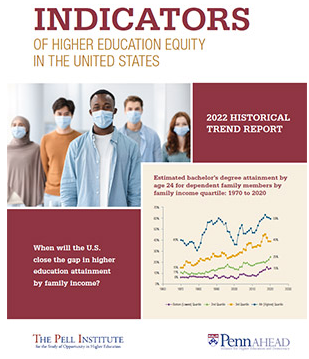 A new report from The Pell Institute and Alliance for Higher Education and Democracy of the University of Pennsylvania finds that the United States is falling behind many countries in the developed world in terms of higher education attainment. Between 2000 and 2020, the U.S. fell from 2nd to 16th among Organisation for Economic Co-operation and Development countries in bachelor’s attainment among individuals between the age of 25 to 34. Much of the decline in educational attainment is attributed to unequal income and wealth which limits the ability of Blacks and other underrepresented groups to afford a college education.
A new report from The Pell Institute and Alliance for Higher Education and Democracy of the University of Pennsylvania finds that the United States is falling behind many countries in the developed world in terms of higher education attainment. Between 2000 and 2020, the U.S. fell from 2nd to 16th among Organisation for Economic Co-operation and Development countries in bachelor’s attainment among individuals between the age of 25 to 34. Much of the decline in educational attainment is attributed to unequal income and wealth which limits the ability of Blacks and other underrepresented groups to afford a college education.
Some key findings include:
* In 2020, an estimated 79 percent of 18-to-24-year-old recent high school leavers from the highest family income quartile enrolled in postsecondary education, compared with 48 percent in the lowest quartile.
* Students from the highest SES quintile are 8 times as likely to attend a “most” or “highly” competitive institution compared to the students from the lowest quartile (33 percent vs. 4 percent).
* The maximum Pell Grant rose from $2,635 to $6,345 between 1974-75 and 2020-21. Simultaneously, during the same period, the overall college cost increased by about 157 percent ($9,849 and $25,281).
* The share of higher education expenditures paid by students and families increased from one-third (33 percent) in the late 1970s to almost half (46 percent) in 2020.
* Use of loans among bachelor’s degree completers has increased in the last 30 years, with Blacks having some of the highest percentages of students who must borrow (85 percent) and the highest amount borrowed for bachelor’s degrees.
The full 320-page report, The Indicators of Higher Education Equity in the United States: 2022 Historical Trend Report, may be downloaded here.












